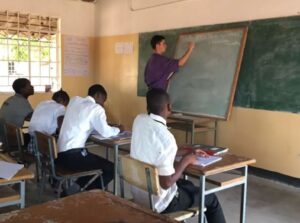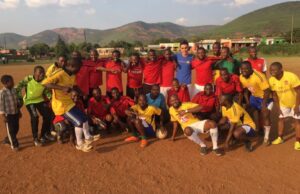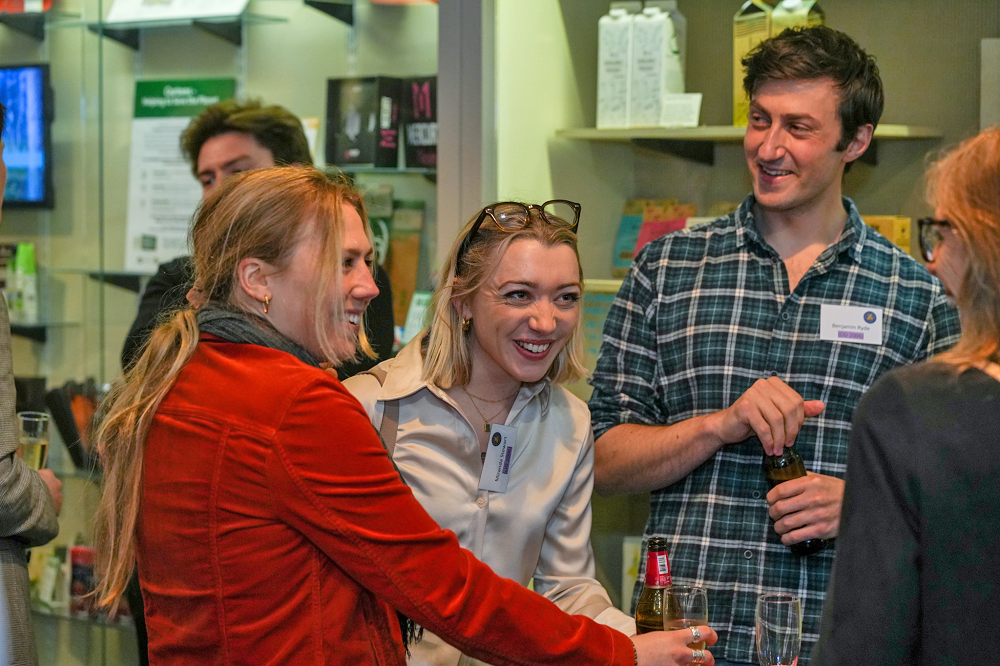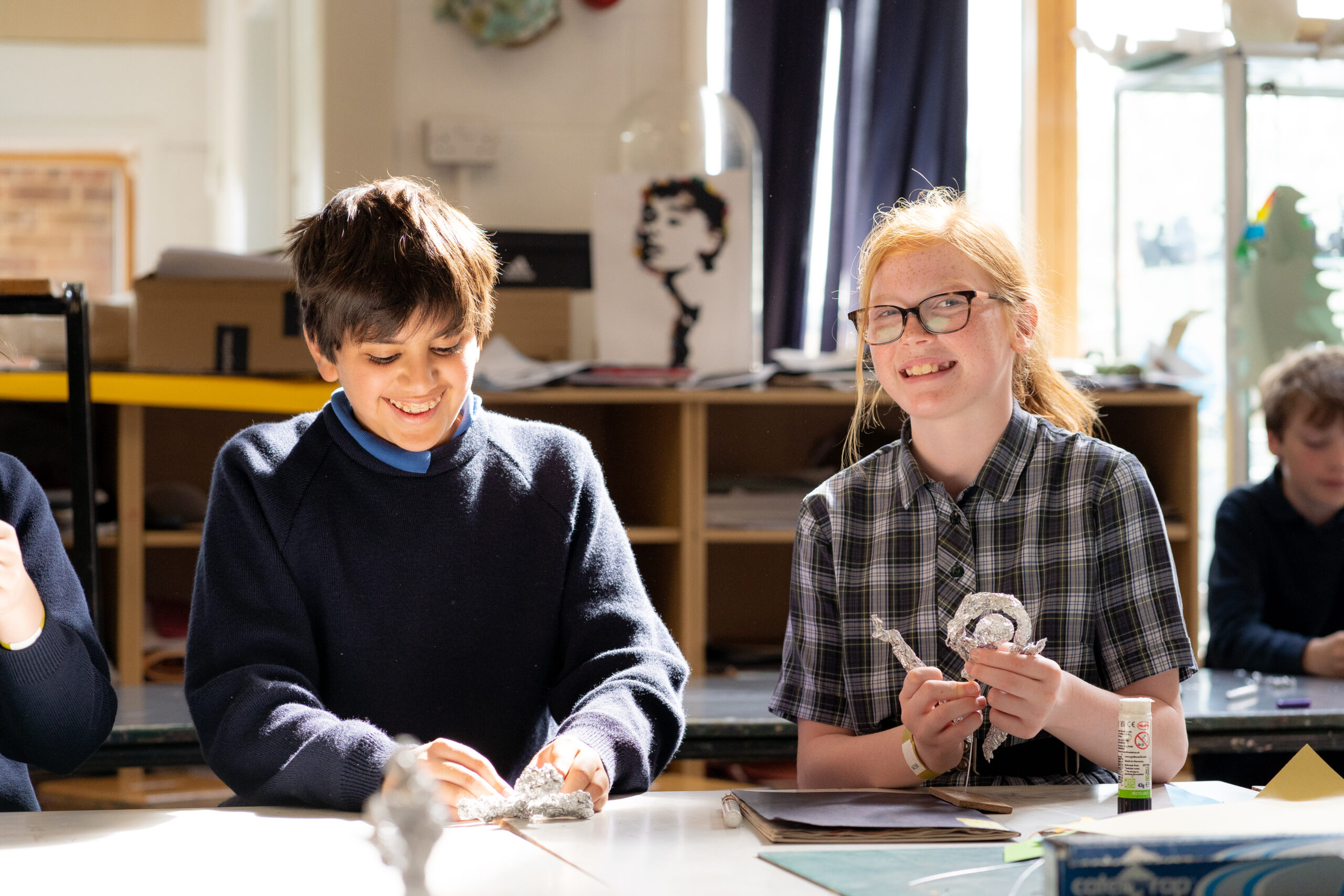A Report by Tom Mills (OD 2014)
In September 2019, I travelled to Zambia to take up a year-long teaching placement organised by the Coll-based charity Project Trust, sponsored by eight charities, along with innumerable friends and family. I was heading to Mambwe Secondary School, a rural boarding school in Zambia’s Eastern Province, in the Luangwa valley of Luangwa. This is my account of seven months teaching science and maths at Mambwe, before I was recalled to the UK in March 2020 as the world locked down.
Leaving home, family and fabulous friends was difficult. Knowing I would not see loved ones for many months was a tough malaria pill to swallow. After two days of travelling by plane, bus and taxi, my Project Trust partner and I reached our simple house in the Mambwe school’s grounds: home for the year ahead. We quickly had to get used to power-cuts and intermittent water supplies. The first night we had a power-cut halfway through making supper. We had to eat hard pasta and go to bed with no fan.
Before embarking on Project Trust, the one aspect that most scared me was living for a whole year with a stranger – in my case Jack from Edinburgh. Project Trust seeks to pair up people with complementary skills, and neither of us had come across someone like the other before. But our friendship quickly developed. Jack would often make a suggestion, reflection or decision that was quite literally on the tip of my tongue. He was a far better footballer than I, but I beat him at pool, and we enjoyed competing in both of these exploits with the local teachers.
‘October is the hottest month’ we kept being told in our second month, as people tried to make the pre-rains heat more bearable. Some days, the temperature reached 40 ºC and teaching in a brick classroom with a tin roof felt like being in a sauna. The rains kept being delayed, and the humidity of November mounted harder. Finally, the rains came, and the mango trees in our gardens quickly ripened.
I adored the hours I spent in the classroom. I found myself thinking about the best way to convey tricky mathematical or scientific concepts using limited resources. I found it exhilarating and felt my skills improving. To start with, I would speak from notes, but soon moved to teaching content from memory. Improving as a teacher was deeply satisfying.
One challenge was students falling asleep in my afternoon lessons. I had been worried about classroom management but the more significant struggle was engaging the students. The heat combined with cramped sleeping arrangements made matters worse. One teacher reported that there were only 192 mattresses in a school of 600 boarders.
In both of my classes, around half of the 40 pupils in each one enjoy learning and are keen to improve their skills, despite the heat and general attendance. Getting the class to understand a concept provides an enormous sense of wellbeing, and I loved getting asked for extra homework or help.
Our daily routine involved getting up at six with lessons starting at seven. School finished at 1 pm with lunch. School lunch was a tasty lunch of nshima and beans, and a treat of chicken on a Tuesday. Nshima is a porridge-like carbohydrate made from ground maise, cooked until so thick that you can roll it into balls and dip it in your beans. We had afternoons off, giving us time for lesson planning, walking the hour to the nearest town to buy groceries, or just sitting in a hammock under the mango tree, reading. I quickly settled in and embraced a more relaxed African lifestyle.
There were tough times. Watching and hearing a line of pupils being hit for not cleaning the toilets was emotionally traumatising. My initial reaction was to rush to judgement: feeling that attitudes to physical punishment needed to change.
Then I checked myself. What right did I have to judge as an outsider? Is that not a colonial approach? Perhaps the Zambian Education Ministry will need to do more to change teachers’ attitudes.

In the second term my teaching load doubled. With several teachers leaving to take up more attractive postings, there was a constant lack of science and maths teachers at the school. It took some getting used to, but my lesson planning quickened, preventing me from working 12 hour days. By February I was more settled and happy than ever.
After-school activities included rugby training sessions with the male students. One day five girls came along, desperate to do some full-contact rugby. I found it hard to say no to the players when they asked to play full contact at the end of a drills session. I agreed through gritted-teeth, hoping they wouldn’t lose theirs due to a lack of mouthguard. The girls were easily the best players. They had no qualms about running straight through boys twice their size carrying the ball. I was really impressed.
I played football with Mambwe teachers each week. A memorable excursion was a teacher’s football match against a nearby school in Chipata. Before playing, football boots needed mending. This involved heating a metal pin on a fire, poking holes all around the plastic sole of the shoes and then threading slices of tyres through them. Ingenious. The morale was high on the bus, boasting about our anticipated performance in the match and in the bar afterwards. It turned out the other school’s teachers had been practising hard, and were more into football than us, making our last-minute winning goal all the more rewarding.

We lived an hour’s shared taxi-ride to Zambia’s flagship national park: South Luangwa. We were in a game protection area, and active poachers were operating within a matter of miles of us. Of course, we had to visit. Staying in a lodge called ‘Croc Valley’, one of the most amazing places I’ve ever stayed. We sat at the bar watching up to a hundred hippos less than that many metres away. Waking to a tower of about 17 giraffes drinking in the river was a splendid treat.
In March 2020, as the extent of the COVID-19 pandemic became clear, Project Trust recalled all its 300+ volunteers. Like many other African countries, Zambia imposed an early lockdown, closing all its schools. We had only a few days’ notice to say our goodbyes and prepare to leave.
These seven precious months were some of the most intense of my life. As well as developing my teaching skills, and experiencing the challenges facing educators in rural Africa, I learnt a great deal about myself.
I would like to take this opportunity to thank all the charities who helped fund my year by supporting Project Trust, as well as friends and family who came to my Jazz Night, made donations or sponsored my 50 mile endurance walk. I wouldn’t have been able to do any of this without you.
Charitable sponsors:
Abingdon School OA Club Alchemy Foundation
Allen and Nesta Ferguson Trust
Anson Charitable Trust
Bulkeley Evans HMC scholarship
Nicholas Knatchbull Memorial Travel Fund
Roger Vere Foundation
Souter Charitable Trust



